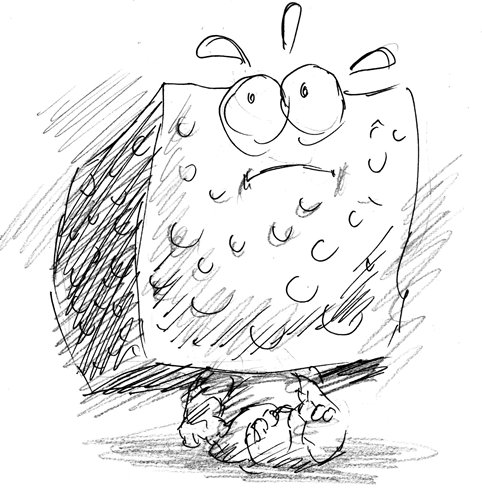
Illustrations: Peter C. Espina/GT
Since I became an expectant mother, what I think about most every day is how I should raise my child. One of my friends, a four-year-old girl's mother, told me that her little girl has already started to take pre-primary English courses at a famous English language center for kids, which costs her 25,000 yuan ($3,688) per year. "I never allow my child to watch domestic animated television series. She only watches English-language episodes of imported ones," my friend said, proudly, as if domestic cartoon series are something inferior.
She is not an exception. A popular article that is widely circulated on WeChat recently listed the animated series Chinese middle-class parents prefer for their children. At the bottom are domestic ones such as Pleasant Goat and Big Big Wolf and Boonie Bears, while at the top are the English versions of animated sitcoms produced by countries like the US and South Korea, such as Bob's Burgers and Backkom.
The article further said that in kindergartens, kids watching the same cartoon episodes often make friends with each other. Parents whose children can understand English shows look down upon their peers, who only offer children domestic ones, and an invisible wall forms between their kids.
There is a Chinese saying, "Don't let your child lose at the starting line." It's obvious that competition between parents who don't wish their children to lose at the starting line has even started from what kind of animated series their children watch. Those who choose to shrug off domestic animated shows have their reasons. Countries including the US, South Korea and Japan are more adept at making animation than China. Children can not only enjoy humorous and imaginative cartoons but also learn English by watching foreign animated sitcoms. But that doesn't mean watching foreign cartoons is superior to watching domestic ones.
No parents want their children to lag behind others. Therefore, they send their kids to the most expensive early education center, let them watch the latest English series, and take them to travel overseas - as if the more superior environment of growing up they can provide, the more qualified middle-class parents they are. They may harbor a sense of superiority over those who cannot afford these things, but if this sense of superiority exercises an invisible, formative influence on their children's character, it is by no means a thing to be proud of.
A child's world is supposed to be innocent and pure. They don't care whether they can speak English or not, nor do they think visiting the Statue of Liberty is more fun than running wildly with their peers at a playground.
But imagine when a kid who watches Bob's Burgers refuses to make friends with another child who watches Pleasant Goat and Big Big Wolf. Their naïve worlds are tarnished by a sense of hierarchy imposed by adults.
"In my younger and more vulnerable years my father gave me some advice that I've been turning over in my mind ever since. 'Whenever you feel like criticizing any one,' he told me, 'just remember that all the people in this world haven't had the advantages that you've had,'" the Great Gatsby said. He has a wise father. But if what your kids learn is a sense of superiority, you may have offered them the worst in your efforts to give them the best.
The author is a reporter with Global Times. opinion@globaltimes.com.cn



